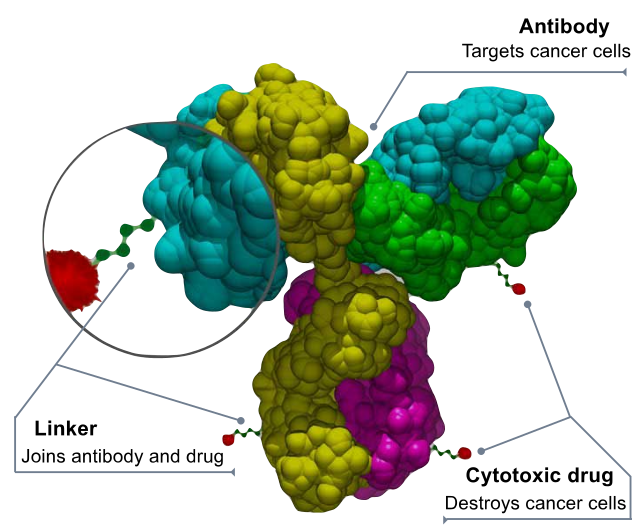Antibody Conjugates in 2025 — Smarter, Sharper, and More Precise Cancer Solutions




In 2025, Antibody Conjugates are emerging as a new generation of targeted therapies, combining the accuracy of antibodies with powerful bioactive payloads. These conjugates are changing the way we address complex diseases, especially cancer, by precisely delivering therapeutic molecules directly to diseased cells.
💡 What Are Antibody Conjugates?
An antibody conjugate is a biologically engineered molecule consisting of:
- A monoclonal antibody that targets a specific marker on diseased cells
- A bioactive payload that modifies, disrupts, or halts abnormal cell behavior
- A linker that connects the two and controls where and when the payload is released
The antibody acts as a targeting system, homing in on disease-specific markers, while the payload performs its activity only within the affected cell. This makes antibody conjugates highly selective, reducing unwanted impact on healthy tissues.

🔬 How Antibody Conjugates Work: Guided Precision
Here's a simplified overview of how these therapies function:
- Targeting: The antibody binds to a unique antigen on the surface of a diseased cell (such as a tumor marker).
- Internalization: The cell absorbs the entire antibody-payload complex.
- Payload activation: Once inside, the linker breaks or is processed, releasing the active molecule.
- Cellular response: The released component disrupts vital functions, leading to cell neutralization or death.
This highly selective approach offers a powerful strategy for targeted treatment, with fewer side effects and broader application potential.
🧪 The Most Promising Antibody Conjugates of 2025
Antibody conjugates are currently approved for several conditions and continue expanding across therapeutic areas.
🌟 Approved examples include:
- Enhertu® (HER2+ breast and lung conditions)
- Trodelvy® (triple-negative breast cases)
- Padcev® (urothelial carcinoma)
- Elahere® (ovarian treatment pathways)
📈 Ongoing research areas:
- Conjugates for blood cancers, including leukemia and lymphoma
- Programs targeting GPC3, PSMA, and CD22 for solid tumors
- Multi-targeted designs aimed at overcoming resistance and relapse
- Multi-targeted designs aimed at overcoming resistance and relapse